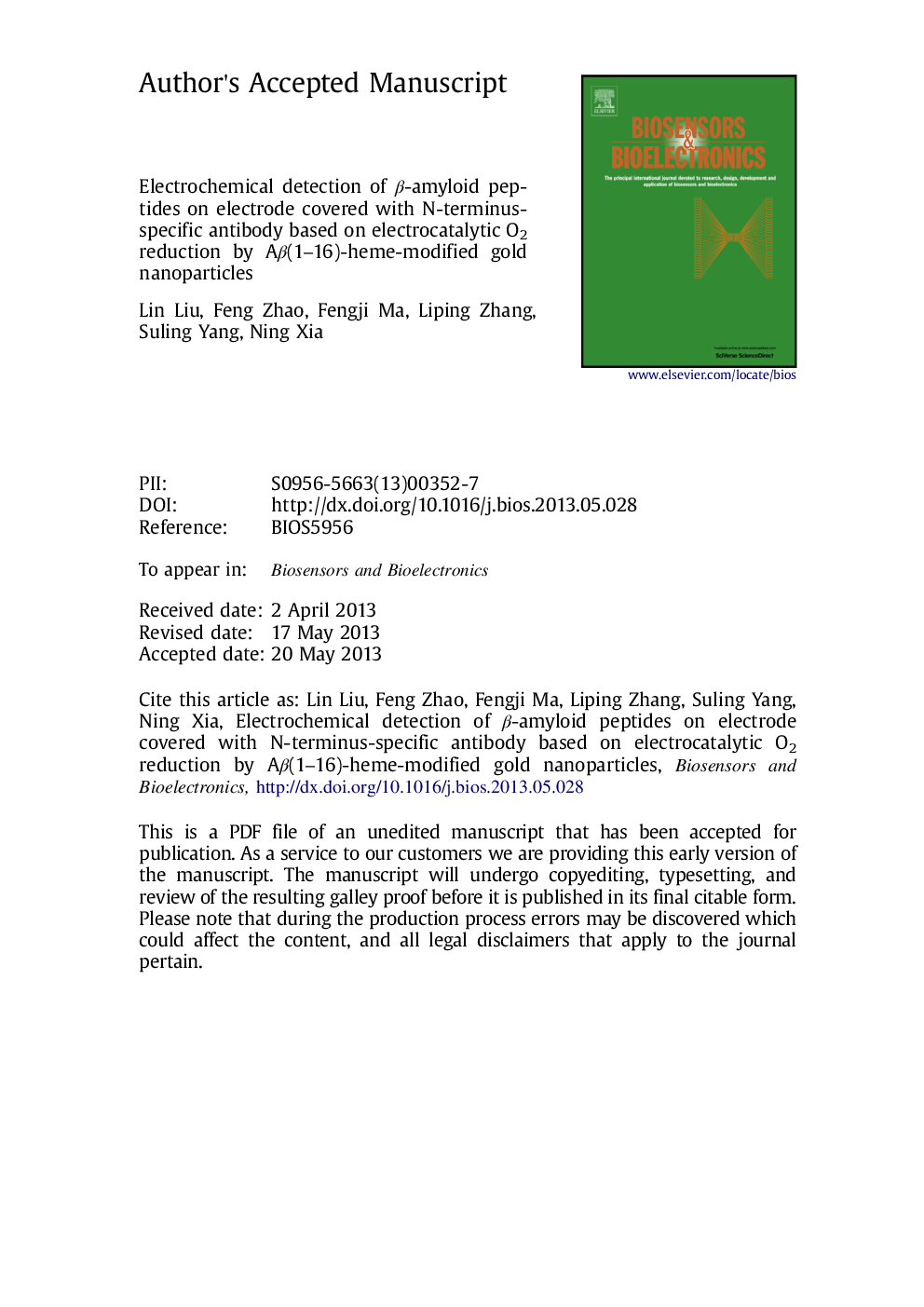| Article ID | Journal | Published Year | Pages | File Type |
|---|---|---|---|---|
| 7234201 | Biosensors and Bioelectronics | 2013 | 16 Pages |
Abstract
β-Amyloid (Aβ) peptides are believed to be important for the diagnosis and prognosis of Alzheimer's disease (AD) serving as reliable molecular biomarkers. In this work, we reported a simple and sensitive electrochemical strategy for the detection of total Aβ peptides using gold nanoparticles modified with Aβ(1-16)-heme (denoted as Aβ(1-16)-heme-AuNPs). Monoclonal antibody (mAb) specific to the common N-terminus of Aβ was immobilized onto gold electrode for the capture of Aβ(1-16)-heme-AuNPs. The anchored Aβ(1-16)-heme-AuNPs showed strong electrocatalytic O2 reduction. Pre-incubation of the mAb-covered electrode with native Aβ decreased the amount of Aβ(1-16)-heme-AuNPs immobilized onto the electrode, resulting in the decrease of the reduction current of O2 to H2O2. The competitive assay is sensitive and selective to Aβ peptides. The voltammetric responses were found to be proportional to the concentrations of Aβ ranging from 0.02 to 1.50 nM, and a detection limit of 10 pM was achieved. To demonstrate the viability of the method for the analysis of Aβ in real sample, artificial cerebrospinal fluid (aCSF) containing Aβ(1-40), Aβ(1-42) and Aβ(1-16) was tested. We believe that the method would offer a useful means for quantifying Aβ in a biological matrix, and be valuable in the design of new types of electrochemical biosensors for the detection of peptides and proteins.
Related Topics
Physical Sciences and Engineering
Chemistry
Analytical Chemistry
Authors
Lin Liu, Feng Zhao, Fengji Ma, Liping Zhang, Suling Yang, Ning Xia,
